You need to Secure the Formworks | #Construction Diary 006
If you neglect to fix me before pouring, It will cost you too much. - formworks
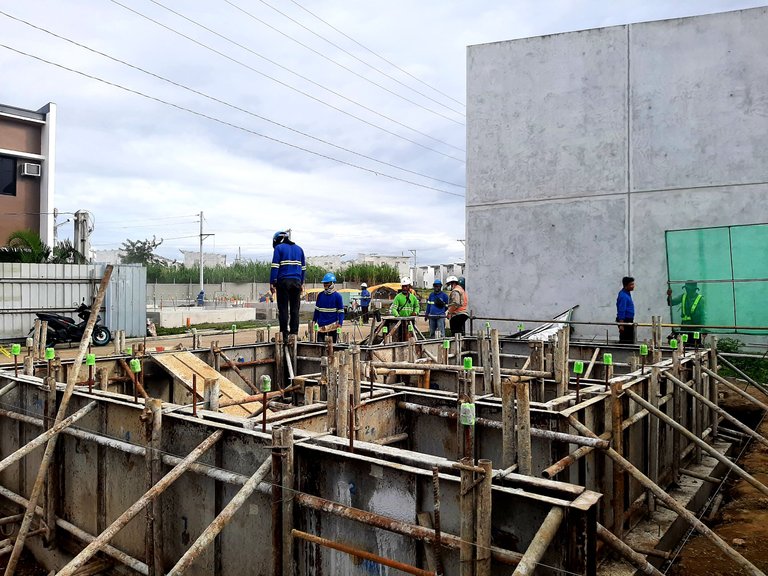
Formwork is one of the primary materials needed in construction. It is one of the element in site that you need to pay attention. From the estimate you have of the material, the status of each member, and the proper installation of formworks on the site.
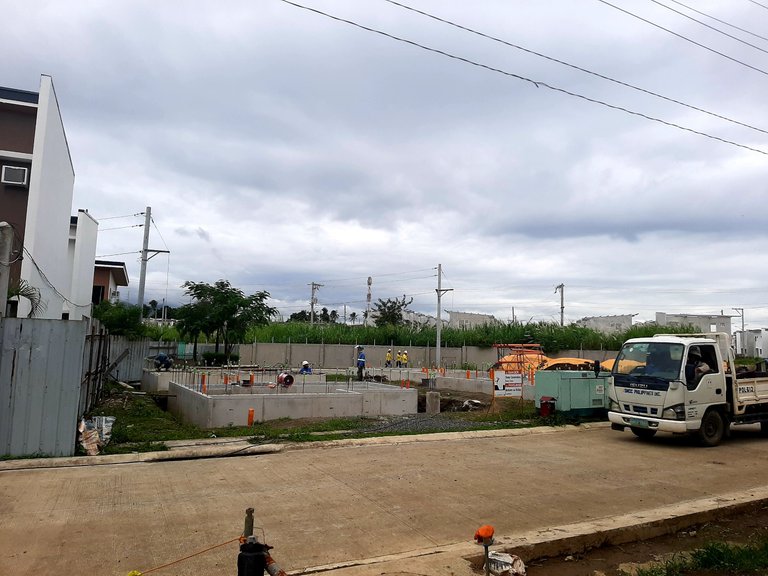
This is one of the crucial stages of construction, no proper inspection can affect the structural stability of the building, and the cost project can also bloated due to some rectification caused by failure formworks. The timeline projection to finish your project is also affected and more. These are just some of those affected areas of your building construction if you do not secure the quality of the formworks and their installation.
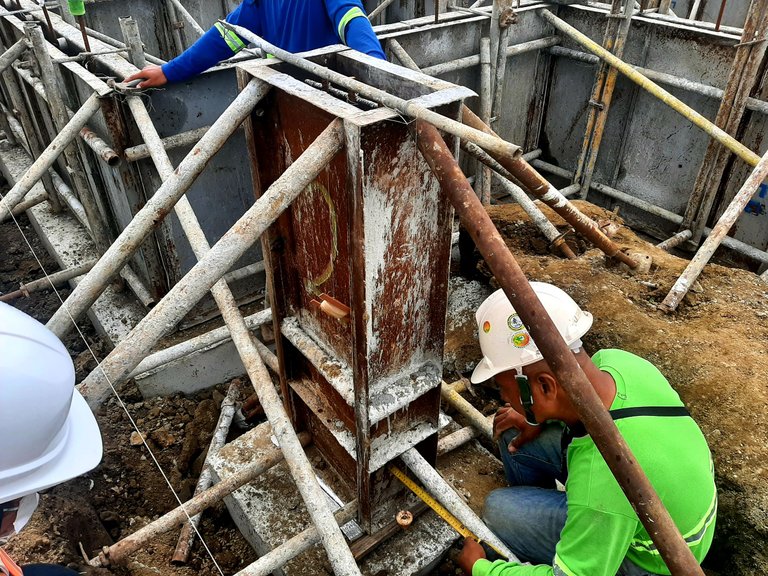
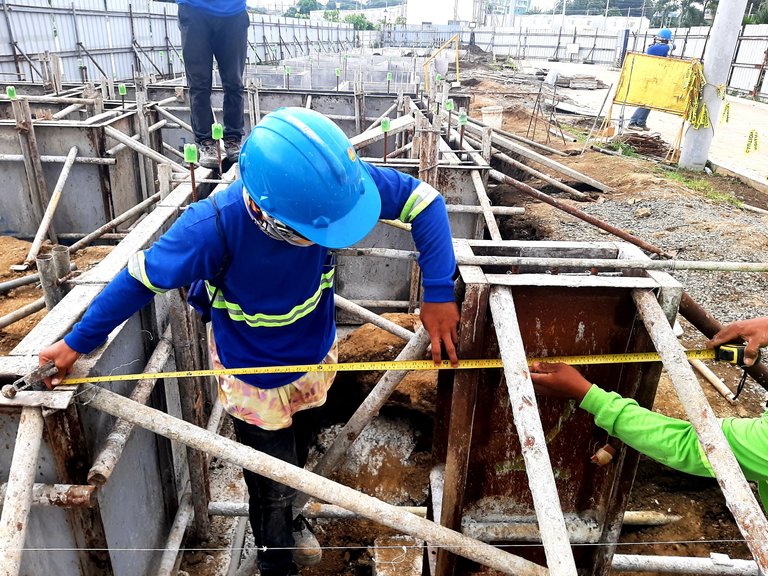
In this blog, I will share some of the important areas in checking the formwork. As a quality engineer in a housing project, this is one of the components in the building we securely check before pouring.
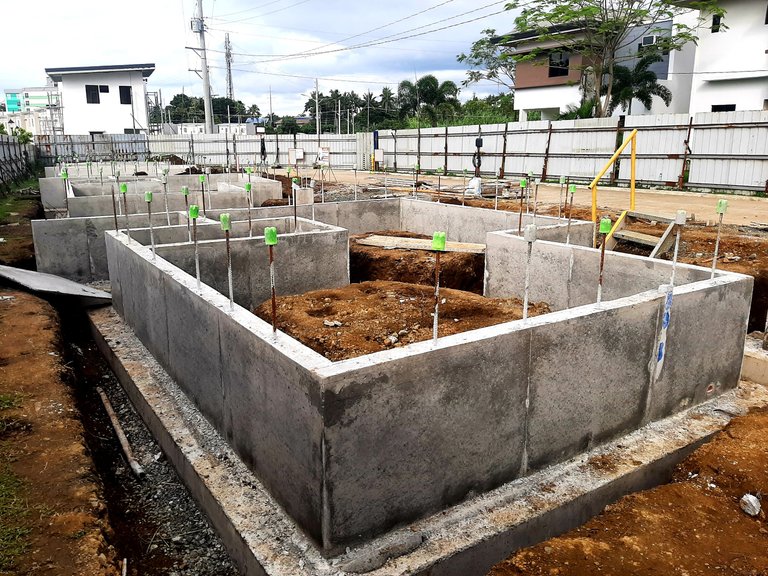
This time we have an upstand wall, a substructure that holds both vertical and horizontal loads. It is the structure in our housing project that transmits the loads from the superstructure to the foundation of the building.
What do we check?
For the formwork of this structure before pouring, here are some parts we check to ensure the quality of the output product, the stability of the structure, and its accuracy location.
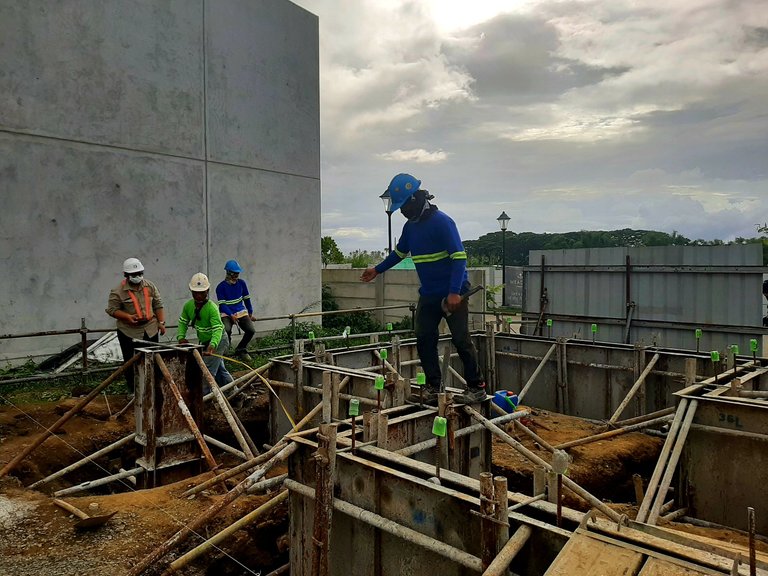
First, we need to check the Form Panel. Our panel on site is made of steel. It is the main component of the formwork system. Make sure it is clean and free from dirt and debris. It is aligned, with no wavy surface, and no visible gaps in installation. Make sure that the panel has enough strength to hold the concrete. Apply Form oil to maintain a good finish surface after stripping.
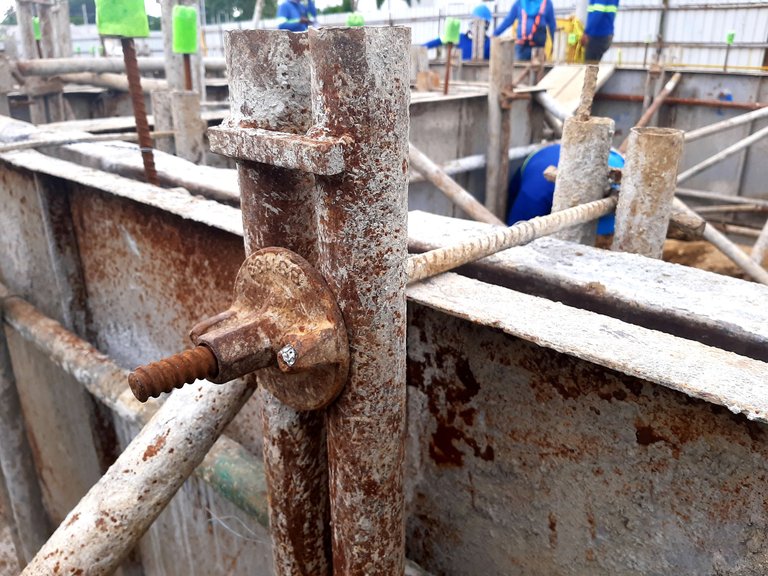
Check the Form Ties, and ensure the ties are in good condition, have no damage, and are not bent. Make sure the ties used can resist the pressure from the concrete, if not the formwork might explode or move. Keep the design spacing and placement of the ties in place to have an equal distribution of load and support.
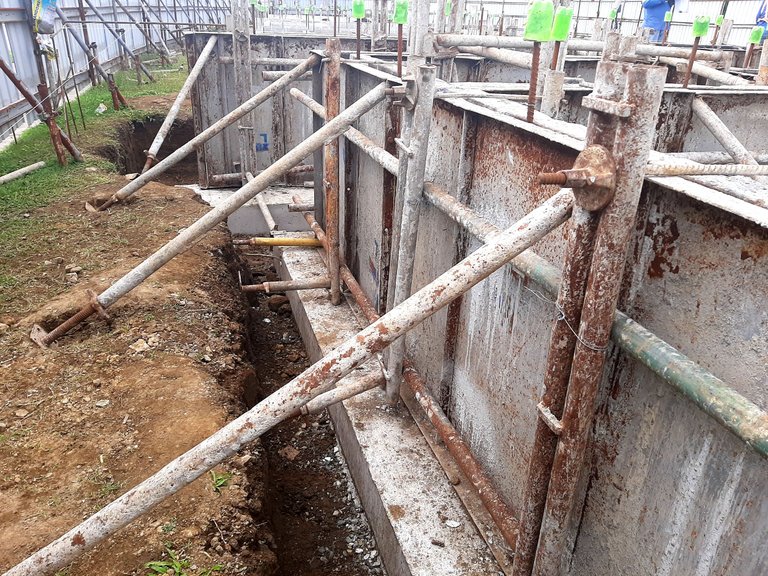
Braces and Support, This is the component of the formwork system that holds the formwork in place and prevents movement during the pouring. In this component, we need to check if the supporters are firm and stable in placement. Proper alignment and angles can also affect the support. Secure all the braces that are tight and not loose. Always double-check this one, this is just a small detail in installation but it is one of the most neglected parts of the system. The team thought that they secured it properly but sometimes they forgot to tighten it.
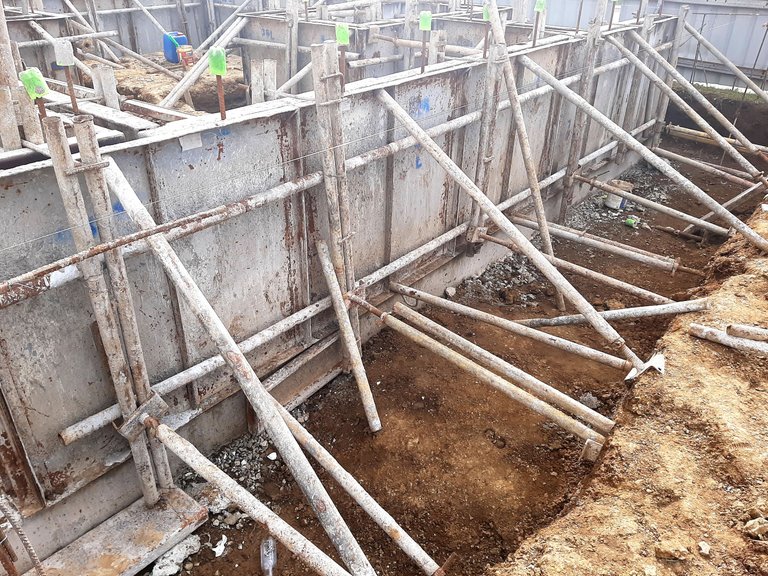
Check also the Horizontal support or the Wallers. This support helps and binds all the formwork panels to act as one. It distributed the loads across the formwork equally. In this support, we will check its design spacing, the installation if it is fixed properly, and the size of the support if it can hold all the pressure. On-site, we use the customized GI pipe to act as wallers. This material is enough to hold the pressure of the pouring concrete.
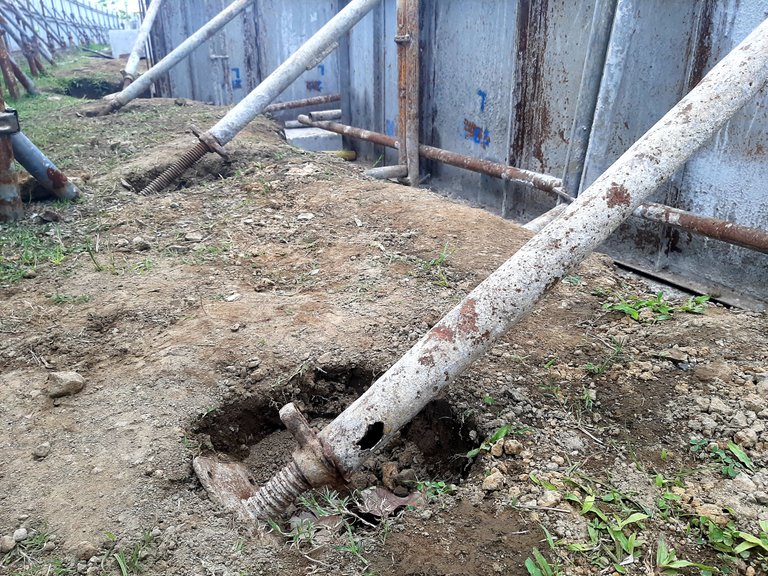
Another thing to check is the Shoring, which is the support that transports the load and pressure from the system to the ground, it is like the Braces and Support that hold the formwork in place. Make sure to check its spacing and location of placement. Also, we need to check if it is fixed and installed in a stable location.
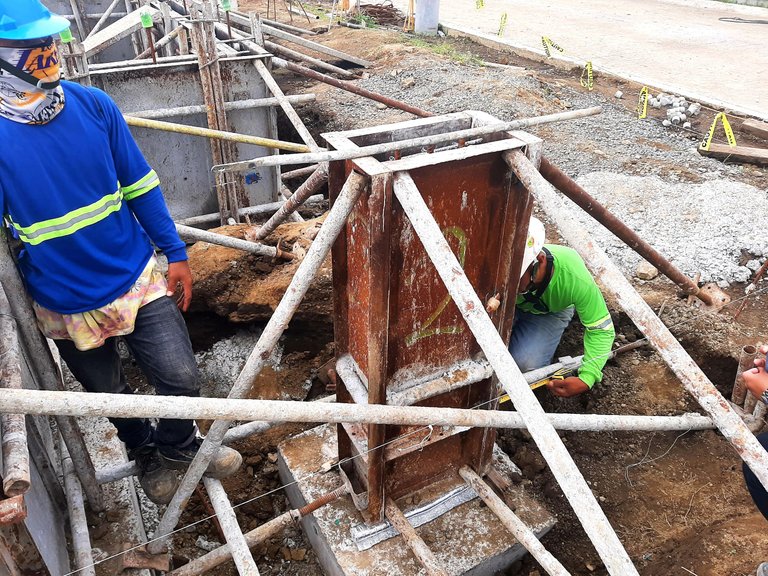
Additional checking also during the formwork is the placing of rebar inside the formwork. Make sure to provide enough concrete cover to the reinforced rebar. Also, double-check some debris and garbage side the formwork then remove them.
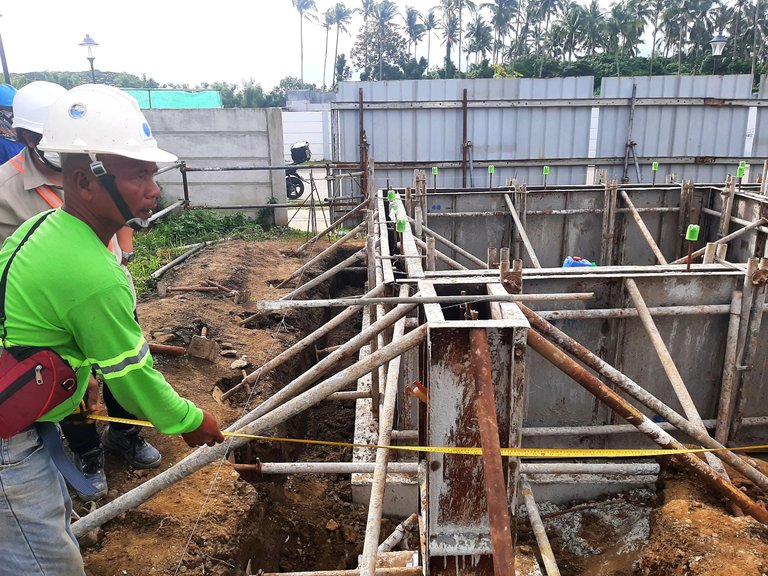
Of course, after the formwork components are securely checked, you now check their alignment and offset to secure the levelness and alignment of the casted concrete. Make sure to have a proper platform for pouring and have a functional Concrete Vibrator available for the casting time.
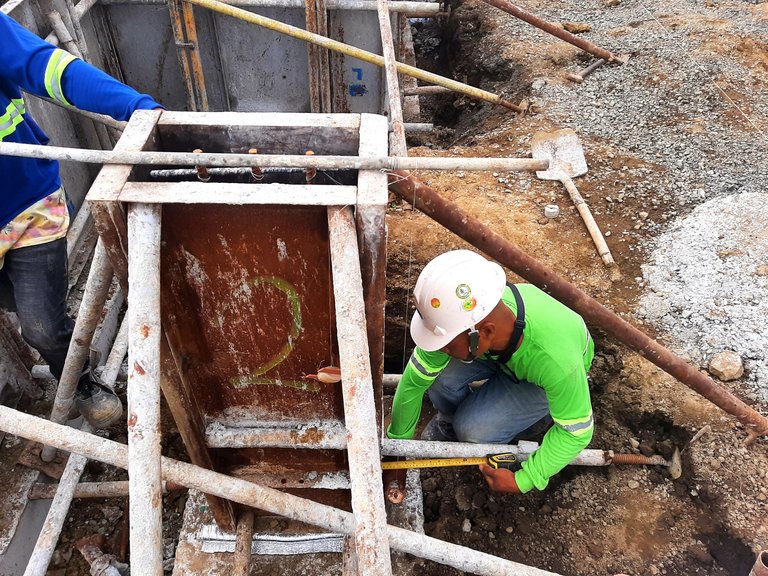
That's are some components of the formwork system you need to check before pouring. Securing these elements secures the stability of the structure and lessens the loss of money and time.
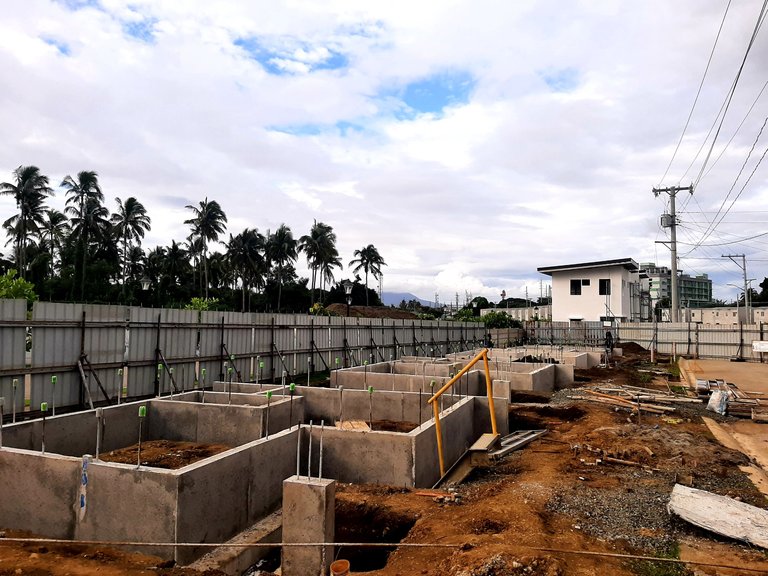
So far on this structure that we inspected, they installed the formwork system properly, though there are some loose ties and wallers, we made them double-check the others to ensure that every part is placed properly and fixed in place. They have a complete platform and are ready for casting.
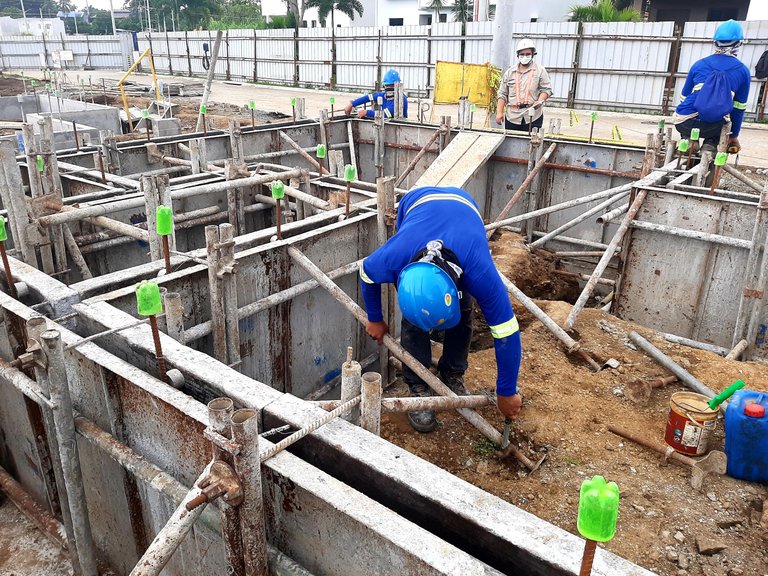
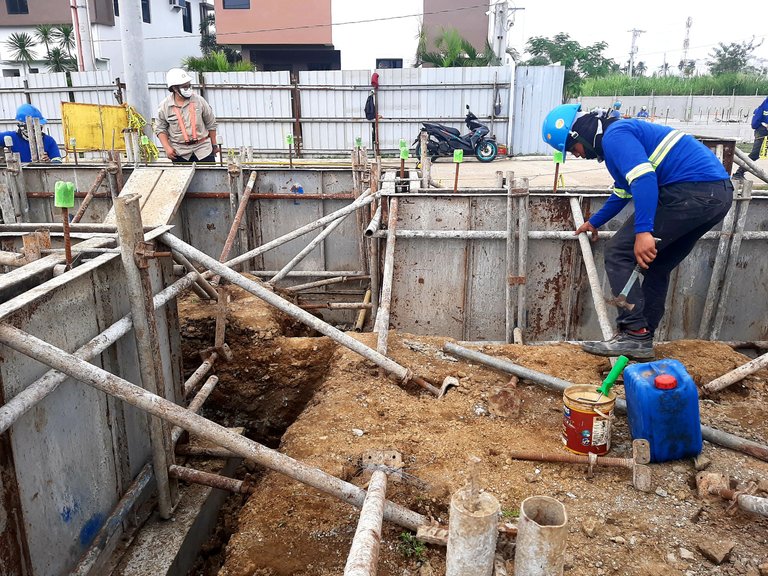
That's it for these blog builders in Hive. Hoping you learned something on this blog that you can use somehow. Thank you for joining me and visiting my little Hive room.
If you have also some construction stories and experiences to share, Feel free to share it in our community " Construction World ". Let's all build together a safe modern world.
This is @intoy.bugoy! See you in my next Hiventure 😉

Not so tall, not so dark, not so handsome but surely I'm a CUTE one 😊.Your Civil Engineer, Real Estate Agent and Financial Adviser. I'm into Travel's and Photography. Knowing the culture of one place is my interest. Come and join me in discovering this infinite beautiful world following all my #LakwatsaniIntoy diaries (MyTravelstories).
If hIS content made you 😁, then drop some ❤️ by upvoting and leaving a comment. Also, click the Follow button to keep posted on his journey here on Hiive.
Let's Connect In My: INSTAGRAM | TWITTER | FACEBOOK Posted Using InLeo Alpha
Keep safety there :)
Build a house is really tired. As a design lover, when I tried to renovate my house, I feel drain my energy too much ehehe.
I feel you, Building a house not only exerts more physical energy but also drains your mind thinking and analyzing in creating the output you want. Thank you for the visit @anggreklestari.
Kudos to you Kuya, this feels dangerous and I think that you should always be careful with the equipment and such. I'm sure that the output of this will be a masterpiece
Thank you @madimoire for the kind words.